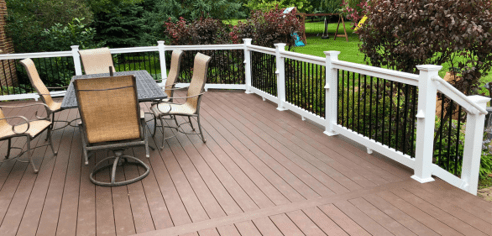It is difficult to get into HVAC, but once you have the right information it is easy. The following article will be of help if you want to know more about your HVAC unit. If you find this intriguing, keep reading.
Do not be surprised if the HVAC contractor you choose does an evaluation on your home. Any good contractor will spend time looking at the system you currently have and what the needs are for your home. They will also take a look at your duct system and look for air leaks.
If you have units that are condensers outside of the home, keep them free of debris. Falling leaves and wind or rain may cause debris to reduce the efficiency of your unit. The whole thing can overheat, causing major problems and possibly an enormous expense for you.
Do you hear a clicking sound when your fan is turning? This may mean that there is something in the way of the blades of the fan. If it gets so bad that the blade bends, you must replace it, just unbending it will leave the fan unbalanced and can cause further issues.
In order to avoid having any problems with your air conditioning unit, keep all vegetation at least two feet away from the outdoor unit. The unit should be clear of any vegetation on all sides and above. When you mow the lawn, aim the grass clippings away from the a/c unit. This will prevent grass getting inside the a/c and making it malfunction.
Make sure that your contractor provides a home assessment. Not every HVAC solution is for everyone. Your home could have special needs for heating and cooling. Your contractor should do a walk around of your space to judge what is best. If they aren’t be sure to request one.
In the winter, wearing layers can save you a ton of money on your utility bill. If you can install a digital thermostat that makes the house cooler when you’re asleep and warmer just before you get up, you can see significant savings on your next bill when it arrives.
Make sure that your AC is turned off when you are not using it. By raising the temperature from, for example 78 to 80, your house will be warmer, but only up to 80 before your AC kicks in. If you decide to set the temperature to 82 or 83 or so on, your AC won’t go on until it reaches that temperature. If will be constantly fighting the heat and using lots of electricity if it is left on all day.
As you compare new HVAC system, be sure to look at the energy ratings for each unit. The higher they are, the better they will be. Efficiency will not only get your home comfortable faster, but it will save you on your energy bills when you are running your new unit.
When you buy a new air conditioning unit, don’t let the salesperson talk you into too large of a unit. This will be a waste of money and won’t efficiently cool your home. The longer a system runs, the more efficient it will be when it’s running, so look for one which runs 15 to 30 minutes.
Manage the heat flow into your home with window coverings to help out your HVAC system. In the warmer months, use drapes, curtains and blinds to block out sunward facing windows to keep heat from building up through the greenhouse effect. Alternatively, make sure that sunlit windows are letting light and warmth in during the colder months.
Most people can learn the basics of HVAC systems. You must take the time and learn the basics. Use the guideline above to help you make those important decisions.















